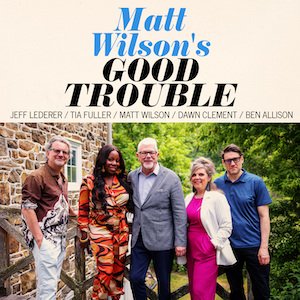Label: You & Me Music, 2024
Personnel - Hyeonseon Baek: vocals; Lucas Pino: tenor saxophone (#1,4,6,10); Kevin Hays: piano; Linda May Han Oh: bass; Jochen Rueckert: drums.
The up-and-coming Korean-born, New York-based jazz singer Hyenseon Baek makes his debut alongside high-caliber accompanists and improvisers, including pianist Kevin Hays, bassist Linda May Han Oh, and drummer Jochen Rueckert. The energetic tenorist Lucas Pino enriches four tracks of the program, which encompasses originals and covers.
Baek, who puts his heart on each of the songs, starts off with “Caravan”, tackling it with a smooth, soulful approach reinforced by dancing bass lines and an appealing percussive background. The main theme is beautifully sung, followed by galvanizing solos from Hays and Pino, who end up dialoguing with the vocalist by the end. Diving deep in jazz tradition while showing refined interpretative skills, Baek advances to Joe Henderson-penned “Black Narcissus” with confidence, rambling free with Oh’s bass lines in the first instance.
The vocal composure in the treatment of soft ballads is admirable, and Mingus’ “Duke Ellington’s Song of Love” comes with a coy sweetness, revealing some analogies with Billy Strayhorn’s “Lush Life”, which feels just a tad too long here. Pianist Jimmy Rowles’ classic “A Timeless Place”, also known as “The Peacocks”, is interpreted with poignant pathos, with Baek giving the best expression to Norma Winstone’s impressive lyrics.
If these slower pieces are explored with gentle moodiness, then “West 4th St.”, a Baek original inspired by the vibrant New York jazz scene, flows with hard-bop energy both in its Korean and English versions, where gorgeous melodic parallels between Baek and Pino deserve attention. Another original, “My Temptation”, carries a Latinized, bolero-ish feel that comes from the bouncing bass groove, featuring Pino as a soloist.
Baek is warm and lyrical throughout, his engaging music packed with the wisdom of these musicians’ hard-learned ears. It’s an auspicious debut, one that anticipates a promising career.
Favorite Tracks:
01 - Caravan ► 02 - Black Narcissus ► 10 - West 4th St (English version)








































